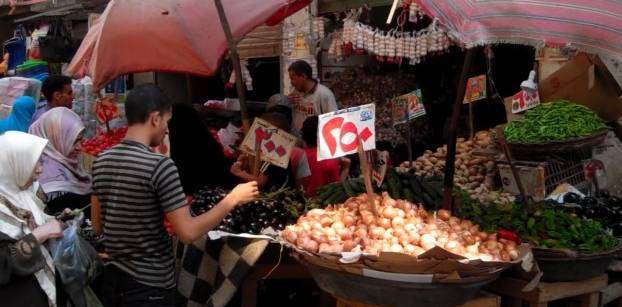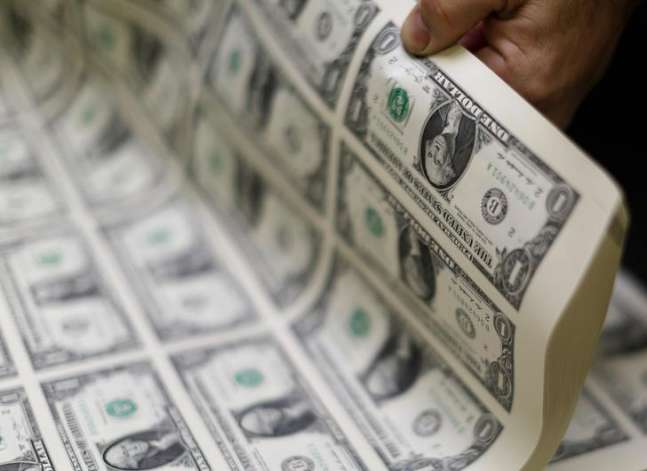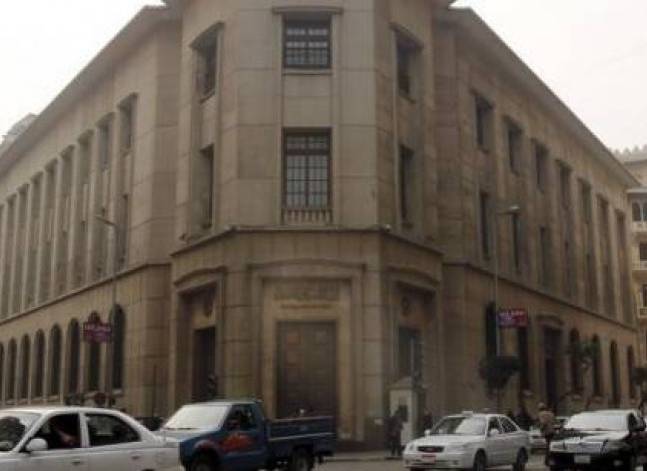Latest NEWS
- Aswat Masriya, the last word
- Roundup of Egypt's press headlines on March 15, 2017
- Roundup of Egypt's press headlines on March 14, 2017
- Former Egyptian President Hosni Mubarak to be released: lawyer
- Roundup of Egypt's press headlines on March 13, 2017
- Egypt's capital set to grow by half a million in 2017
- Egypt's wheat reserves to double with start of harvest -supply min
- Roundup of Egypt's press headlines on March 12, 2017
IMF expects a decrease in Egypt's inflation rate in 2016 and 2017
CAIRO, Apr 13 (Aswat Masriya) - International Monetary Fund (IMF) projected that inflation in Egypt will decrease to 9.6 per cent this year compared to 11 per cent in 2015 despite pressures on prices, the devaluation of the Egyptian pound and the prospective application of the Value Added Tax (VAT).
In a report published on Tuesday, the IMF said that inflation rates will be close in 2016 and 2017 where its projected that in 2017, the inflation rate will decline by only 0.1 per cent to reach 9.5 per cent.
A UAE investment bank Arqaam Captial forecast that the average inflation during the current fiscal year 2015-2016 will reach 10 per cent, which is likely to grow the following year.
The bank said the prospective application of the VAT, in addition to expectations of further devaluation of the local currency against the dollar and the possible procedures taken to restructure the energy prices, are all factors that can pressure inflation during the second half of 2016.
Credit rating agency Fitch projected last month an increase in inflation levels in Egypt, given the weaker exchange rate. Fitch also said that if government plans to depart from the sales tax and implement VAT (value added tax), that could put "upward pressure" on prices.
Mohamed Abu Basha, a macroeconomic analyst at EFG Hermes, estimated the increase in inflation to be between 10 and 11 per cent during the current fiscal year.
According to the state-run Central Agency for Public Mobilisation and Statistics (CAPMAS), the average inflation during 2015 was about 10.6 per cent.
The Central Bank of Egypt (CBE) devalued the Egyptian pound last March by EGP 1.12. The pound changed hands with the dollar at EGP 8.85 before the CBE appreciated it 7 piasters, to reach EGP 8.78.
After devaluing the pound, the CBE raised interest rates on deposits and loans by 1.5 per cent (150 basis points), in an attempt to curb inflation.
The raise in interest rates aims to keep inflation at 10 per cent in the medium term.
Data from CAPMAS revealed last Sunday that the level of monthly inflation on consumer prices in Egypt rose by 1.4 per cent in March compared to February.
The agency attributed the increase in inflation rate to the increase in rice, meat, poultry prices, ready-made meals, vegetables and fish
The annual inflation however decreased in March to reach 9.2 per cent compared to 9.5 per cent in February.
The IMF estimated, in its report, that the increase in the current account balance for Egypt during 2016 will be 5.3 per cent of the GDP, compared to 3.7 per cent in 2015.
In a report released last month, Egypt's central bank said that the deficit in the current account balance more than doubled during the first half of the current fiscal year, recording $8.9 billion compared to $4.3 billion last year.
The current transactions account includes the balance of trade account, which reflects the difference between exports and the imports; and the service balance which monitors the state's proceeds from tourism and transportation; in addition to transfers that include aids and grants.














